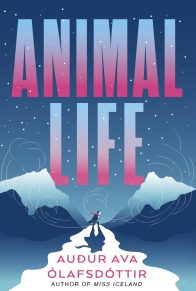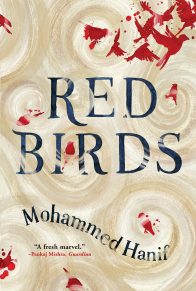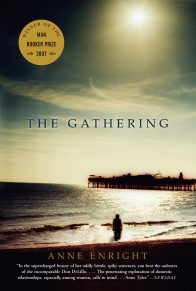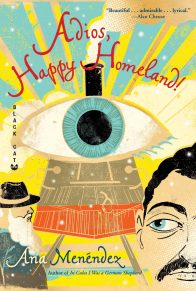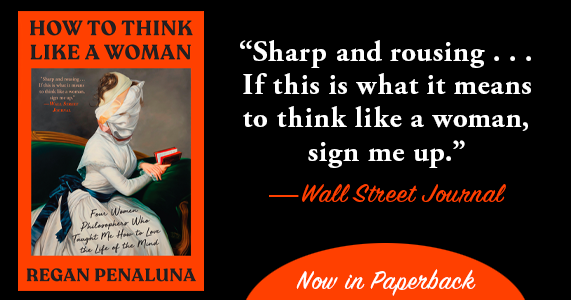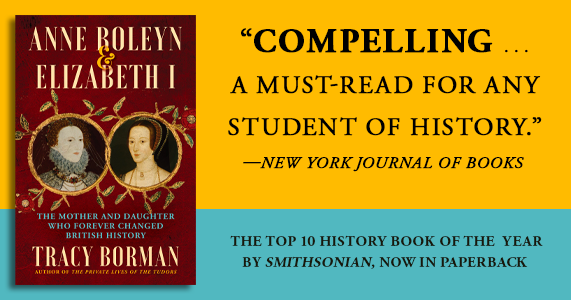I don’t know why sometimes, but I try.
Once I get home, my mother says, “Is it one of those come-hell-or-high-water days, baby?” and while I’d like to be honest about it and say, “Yes, those bastards are talking about cutting my column,” I realize that in the grand sum of things my concern about the job is rather small, not because it means less to me or to the world but because I really have no say in the long run who stays or goes at the Chronicle, even when the who is me. Which, obviously, means everything.
Focus on the stuff in your life you have control over, I say.
“Very interesting,” she says, the cryptic avoidance of my eyes meaning something that, I’m sure, will eventually reveal itself.
I go straight to the underwater-blue glow by the telephone, the one with the virtual rainbow of tropical fishes happily blowing bubbles into the darkness, make them vanish with one tap on the keyboard, check my e-mails. If Lokapi is going to take Prince for the weekend, I want to know how long he’s keeping him and when and where the pickups and drop-offs are going to happen.
A couple coworkers, especially the divorced ones, think it’s weird that I don’t feel any animosity toward Lokapi. Being a single mom is tough enough without having haters on your contact list. The haters always want you, too, to hate. “It’s not natural to be so nonjudgmental, Murron.”
“Are you even human, girl?”
“Should you hand Prince over so nonchalantly?”
Forget weird. I consider their suggestions to be somewhat stupid because when it comes down to it, from top to bottom, inside and out, my kid is one-half Lokapi. No matter how much I or anyone propagandize Prince, some genome on the spiral ladder will be summoning blood to revolt, and I know this. And even if I did feel the way they say I’m supposed to, I still wouldn’t exhibit those feelings in front of Prince, who’s savvy and sensitive enough to know when someone’s being devious.
So I let Lokapi have Prince as much as he wants. From the start, we’ve never involved the courts, and it’s my deepest truest hope that we never do. I don’t really see how anyone else should have say over our son’s life and, luckily, so far, Lokapi feels the same way. I flick through the standard e-mails—weekend playdates at the Watergarden, doting Richard and his downie.dick (@aol.com), enough spam to either save or kill a third-world nation—and then drag to one I’ve never seen before: iker4u@gmail.com.
When I open it, every so-called relative I have is on the CC, even my mother: Richmond.Felice@ubs.com; LazFelice@aol.com; 17GodBlessAmerica76@gmail.com; Paxetbonum@yahoo.com.
Hello everyone. As you know, I have been the primary contact over the past few years when it comes to Mother’s health. This is due, of course, to my decades of work and leadership in the health care industry.
Mother’s systems are now shutting down. If you wish to get your good-byes in before she goes, I’d strongly encourage you doing it soon. She will be at the Elysium Fields Hospice in East San José. I have spoken with Janice Ashton, the hospice administrator, and she informed me that all visits are terminated by 7:00 p.m.
Please respect her wishes.
Mary Anna
I put my hand on my chest, the palpitations of my heart increasing. Weird that I feel no sadness about the news, just a vague, lingering dread, the kind I get before a triathlon. I want to know how these people found me. Prince runs into the room with my mother who doesn’t want to look me in the eyes.
“Who’s that, Mama?” Prince asks.
He’s bouncing on his toes, shadowboxing like the UFC fighters he watches at Lokapi’s, shirtless, barefoot, his hands wrapping and rewrapping his lavalava around his tiny waist. The yellow and blue flowers on the fabric stand out so beautifully against his copper skin. With my encouragement, he’s been learning Samoan customs and phrases at his father’s place, but it sometimes feels like our apartment is not completely our apartment. That Kapi still lives here, and that I don’t have anything comparable to offer my son when it comes to culture, and lineage, and language, and name.
Which takes me, circularly, and by default, back to the original position: Yes, I want you to embrace your father’s heritage, honey. Because it’s his, it’s also yours, okay?
I look up at my mother. She’s carrying the load of inheritance for Prince. And my big brother, Gabe, to a much much smaller degree. By that I mean we love having him, but we rarely have him. We’re not yet sure who’s got Gabe’s heart, but we have our hopes, and our theories, and definitely our doubts.
Mom’s moving into the kitchen to wash the dishes, still ignoring me, which says all I need to know about how the Felices have found me. I respect, though, her desire to avoid a verbal shouting match. She’s crossed a line by passing on my contact information, but it’s for a good reason. Which is a horrible thing to say, of course. I don’t know my mother’s would-be mother-in-law, but I’m sorry that she, or anyone, has to have their “systems shut down.”
“I guess they’re relatives,” I say.
“What’d they want! What’d they want!”
“Not those relatives, Prince.”
“Oh. Not mine then.”
Quick, always has been.
If they’ve never been relatives to me, they’ve obviously never been relatives to him. Because you’re either there for family or you’re not. Which means you’re either family or you’re not. Sounds harsh, but it’s no less true for its harshness. And a kid knows. I did. A kid can tell all those things that we adults have forgotten in our bloated self-reliance. The seemingly easy stuff like: Does that person right there care about me, Mama? You can put up a fight for a while—”Oh yes, she does care about you, baby. And one day you’ll see how much”—but a child knows. After a while, you have to take off the training wheels and let the kid ride around the neighborhood to see for himself. And all you can hope for when he returns is that the emptiness he’s just witnessed will make him closer to you, make him love you all the more for having always been there.
Or else that he’s wiser.
“Can you make sure to cook him something healthy?” I ask my mother.
“Of course, baby.”
She feels guilty for her betrayal. While I won’t make it worse, she should feel guilty for a minute or two. Maybe. But from what I know of them, I can’t stand the family she wanted to marry into to make me.
“Thanks, Ma.”
“Fia ai hamukepa!”
“Hamburger, honey?” My mother, too, has picked up on some of the Samoan.
“Yeah!”
“Yes, Grandma,” I say. “Thank you, Grandma.”
“Sorry,” Prince says. “Thanks, Grandmama.”
“You’re welcome, honey. You listen to Mother.”
“I know. I do. I will.”
“Quiet, Prince.”
“Got it, Grandmama!” He’s shadowboxing again—pop, pop, pop!—his hands and arms an untraceable blur. I follow his head, and watch his dark eyes. I can’t believe how fast and angular his punches are, the way he steps in and cuts out, his body lithe and pliable. How daring the expression on his face is, almost reckless. “Okay, Mom! Don’t worry! I’ll protect my two favorite ladies in the world!”
“Ladies?”
“Right, G-mama!” He jumps up onto the couch, reaches out for a Wiffle ball bat, cuts at the air, and sings, “I’m Samurai Jack, Samurai Jack, Samurai Jack!”
“Sit, please,” I say.
He jumps down, lands with both legs folded beneath him, hands already locked across his lap in mock subservience, eyes crossed. An old game we’ve been playing for so long I can’t remember how it started. The joke is that he’ll straighten his eyes, slowly rising as he achieves visual reacclimation, once I release him from custody.
“Okay, hon. You’ve paid your dues. You’re free.”
He’s coming up now, back to normal again. “Fa’afetai lava.”
“You’re welcome.”
“That means thank you very much,” my mother translates.
“Mom,” I say.
“I’m sorry. I know you know that stuff. Just excited to learn.”
“It’s fine. I get it, Ma.”
“I’m so proud of Prince for picking it up!”
“As am I,” I say. “Kama lea loa kaukala Samoa.”
“I’oi!” Prince shouts.
“That’s really good, too, baby. You talk like a native.”
“Well, I did live with a Samoan for four years, Ma. I know a few words.”
My mother smiles at me. I force a smile back, pouring a glass of chocolate Silk, then head into the rear of the apartment. Sip by sip. Some guy I dated once told me that: Life is a matter, sexy, of sip by sip. Bravo. Probably worked like a charm on one of his bubbleblowing nymphets. I let the soy milk circle around for a minute inside me. Hoping. But knowing better. Knowing better about the worse to come. I open the window to our patio, which is so small Prince can barely fit on it, and try to breathe a bit. But there’s no breeze, the polluted stagnant Bay Area air unable to expand, as if it’s held in by the walls of a dirty laundry closet. I can feel it coming up in my stomach now like the water in one of those famous French fountains.
Damnit, it’s been almost a good month.
I walk over to the toilet and look into the mirror before I squat to face the blindingly clean porcelain. Mom scrubs it for me daily, thinking I don’t know. I do know, and I appreciate it, but I have no clue what to say about it.
The resignation on my face reminds me of the football games Lokapi and I used to watch together when Prince was an infant. Afterward, every coach of the losing team had the same look while shaking hands with the other team’s coach. The tight, closed lips pulled back into the mouth. An admittance of some sort, a series of contradictory statements finalized by the spying public, something like: Okay. I know. You’ve proven me wrong. Thank you. Fuck you. See you next year.
Finally something good I’ve borrowed from the competitive male world. Don’t have a clue who I’m competing with, but it feels completely right to try to conquer this thing. On my own. For my son. To not concede to emotion.
Mom pokes her head in, and I slowly stand. Used to pop up when I’d kept it under wraps. Now that everyone knows, or everyone I care about anyway, there’s no point in keeping up appearances. I just have to watch for my mother’s overflowing font of compassion, which could ruin my progress. When I was a spiker on the high school volleyball team years ago, she used to scream every time I came down from a block at the net. The apocalypse fifty times a match, right when the rubber of my shoes kissed hardwood. My ears would bead on the high-pitched siren each time, almost as if there were no other parents or coaches or friends gathered there in the gym to make noise. Even today, it’s embarrassing to think about. I didn’t understand it then. I think I do now, which basically means I’m a mother, too. Still, you have to fight the instinct, at least in public. Not the instinct to be worried about your child. You have to fight the instinct to lose your balance in drink, or whatever be your vice.
“Baby?”
“Mother. Please.”
“I’m sorry. I just thought you’d want to know about it. That’s all. That’s the only reason I did it.”
But my mother knows the importance of balance. She’s proven it. Been sober, perfectly, ten years and nineteen days. We celebrate that birthday, rather than the one that happened fifty-eight years ago. She calls it “attaining inner harmony.” I admire my mother for conquering alcohol, but I don’t admire her any more now than I ever did. Just didn’t know it then. I was only a kid, after all, a loud and worried girl confounded by her sex and her inheritance, Lazarus’s daily absence from our lives. Or else I was a six-foot oddity who secretly loved books and late-night skinny-dipping alone, stupid with her own terror of inadequacy. “It’s okay, Mom.”
“Okay.”
“We’ll deal with it. Just like anything.”
“Okay, Mur.”
“Anything else?”
“Well, yeah.”
“What?”
“Do you want to see her?”
This surprises me. I guess I have a right. Even if it’s never happened before. I don’t know if she’d want to see me, or see us, but maybe. But then. Seeing her means seeing them, the Felices.





